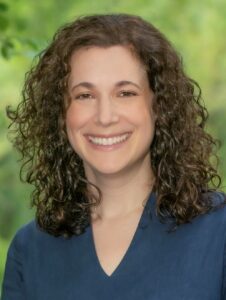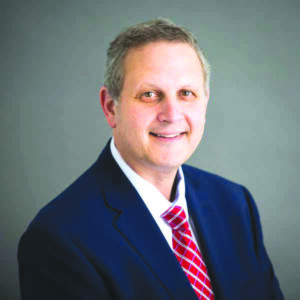
Talia Kaplan and Michael Balaban
After World War II, hundreds of thousands of Holocaust survivors emerged as symbols of the resilience of the human spirit, having endured unimaginable acts of Nazi persecution.
As a community, we have become experts at commemoration. But in our commitment to remembrance, we must also remember the living. This past weekend, we celebrated Holocaust Survivor Day, a time to honor the courage, strength and resilience of those who survived the atrocities of the 1930s and 1940s.
To honor their resilience and courage and the miracle of their survival, communities around the world — from Philadelphia to Jerusalem, New York to Sydney, Chicago to Krakow, and Palm Beach to Los Angeles — organized events with Holocaust survivors, community leaders, government officials and dignitaries. In Philadelphia, we held a special luncheon at the Weitzman National Museum of American Jewish History with Philadelphia-based survivors and their families.

Honoring their heroism and courage, however, requires more than lunches and one-day celebrations. We must also commit all year long to ensuring that all survivors have access to critical resources that will enable them to live their twilight years with dignity. Philanthropists, Federations and local agencies must work together to raise awareness while prioritizing investments in organizations that are doing the critical work of supporting survivors.
The survivors still alive today, now in their 80s and older, were just children during the Holocaust. Many of them spent their formative years in extreme poverty and oppression — and too many of them still live in poverty. Around the world, too many survivors are forced to choose between necessities like food, heat and medical care.
The most recent data available shows that one-third of Holocaust survivors in the United States live in poverty, experiencing a higher rate of poverty than elderly Jewish people who are not survivors and all elderly Americans.
Slipping through the cracks of society, these individuals struggle to meet basic emergency needs like rent, utilities, food, home care, transportation and medical, dental and vision services. For many aging survivors, the expense of in-home senior care is simply infeasible, but leaving home comes with a cost of its own — the resurfacing of decades-old trauma. It’s a silent crisis that is a generation in the making, made worse by skyrocketing health care costs and other expenses of daily living.
In many communities, Jewish Federations and other organizations run local programs designed to aid Holocaust survivors. Years ago, the Jewish Federation of Greater Philadelphia approached Seed the Dream Foundation for financial assistance in closing a gap in funding to care for local Holocaust survivors. When it returned with the request for additional funding the next year, it became clearer just how pervasive the issue was. The need was – and still is – greater than any one organization or single donor can give to bridge the gaps in care.
There is more we can do and should be doing. To meet this rising need, the answer is philanthropic models in which locally raised funds are matched dollar for dollar by national funding partners. Such partnerships leverage a broad funding base while tapping into local expertise to meet the urgent needs of individual survivors.
In 2019, Philadelphia was the first community to join us when Seed the Dream Foundation paired with KAVOD to launch Kavod SHEF (Survivors of the Holocaust Emergency Fund), a collaborative national support initiative to address this need.
Over the past three years, emergency home care services funded by the initiative have increased by 300%; in the first three months of 2023 alone, the initiative fielded 3,200 requests for support. As survivors face the increasing health care challenges that come with age, the requests for aid continue to climb.
Take Morris, for example, who suffered trauma related to his teeth while in concentration camps in Poland. Throughout the years, he has undergone a mouthful of extractions and now requires permanent dentures to speak and eat. With an extremely limited income, though, Morris is unable to cover his dental needs and no longer feels comfortable being seen in public.
Survivors like Morris have suffered enough. He and thousands of others like him deserve to age with dignity, and time is of the essence.
Together, we have the opportunity to make a strong, collective impact that works toward meeting survivors’ urgent needs — but only if we take swift action.
These individuals, who have witnessed the darkest depths of human depravity, deserve our utmost respect, support and care. When we mark Holocaust Survivor Day each year, let us celebrate their miraculous survival, honor their courage and resilience, and let us recommit to upholding our shared responsibility to meet our words of remembrance with action, ensuring that survivors can live their late years with the dignity they so profoundly deserve.
Talia Kaplan is the executive director of the Philadelphia-based Seed the Dream Foundation. Michael Balaban is the president and CEO of the Jewish Federation of Greater Philadelphia.



